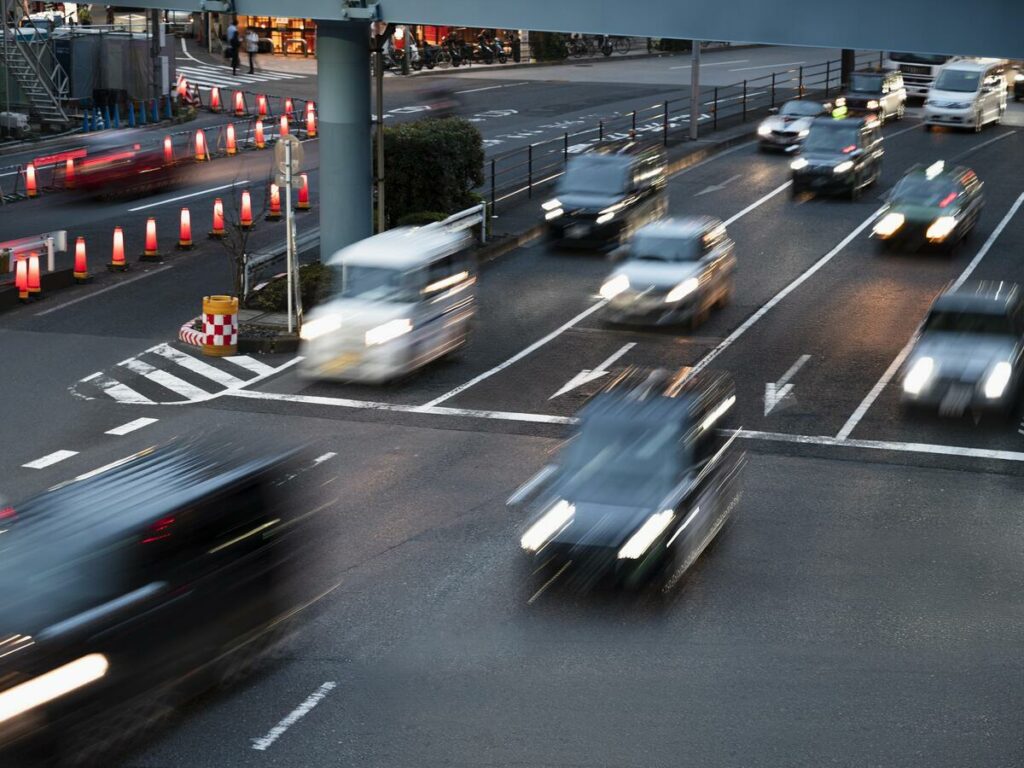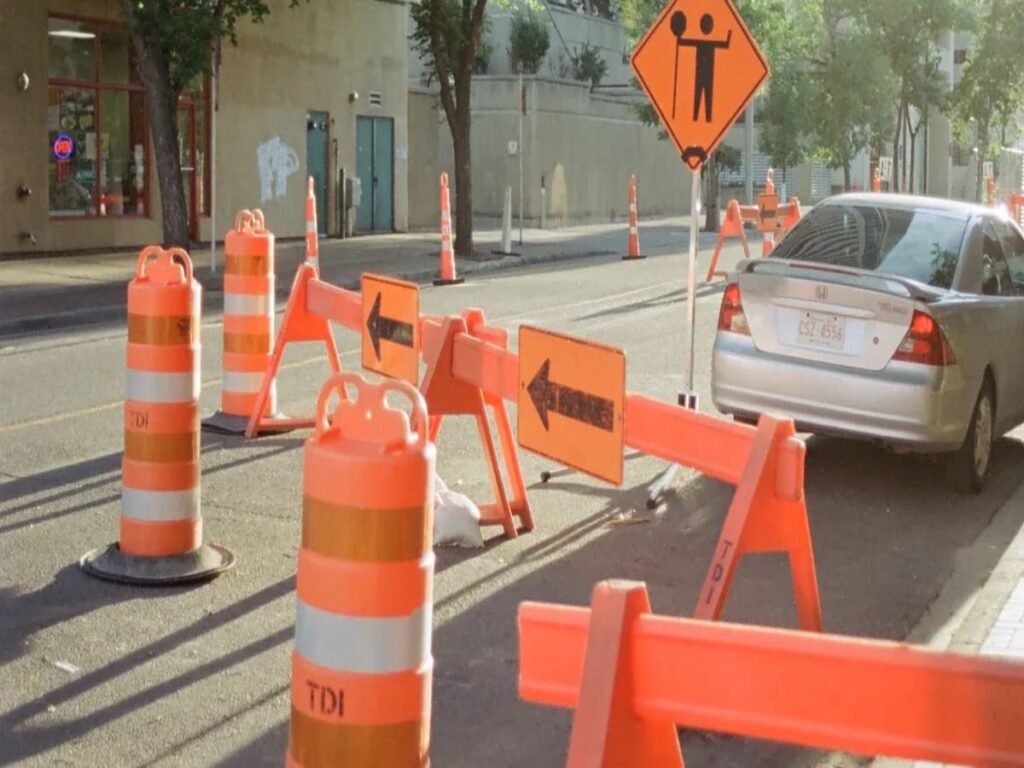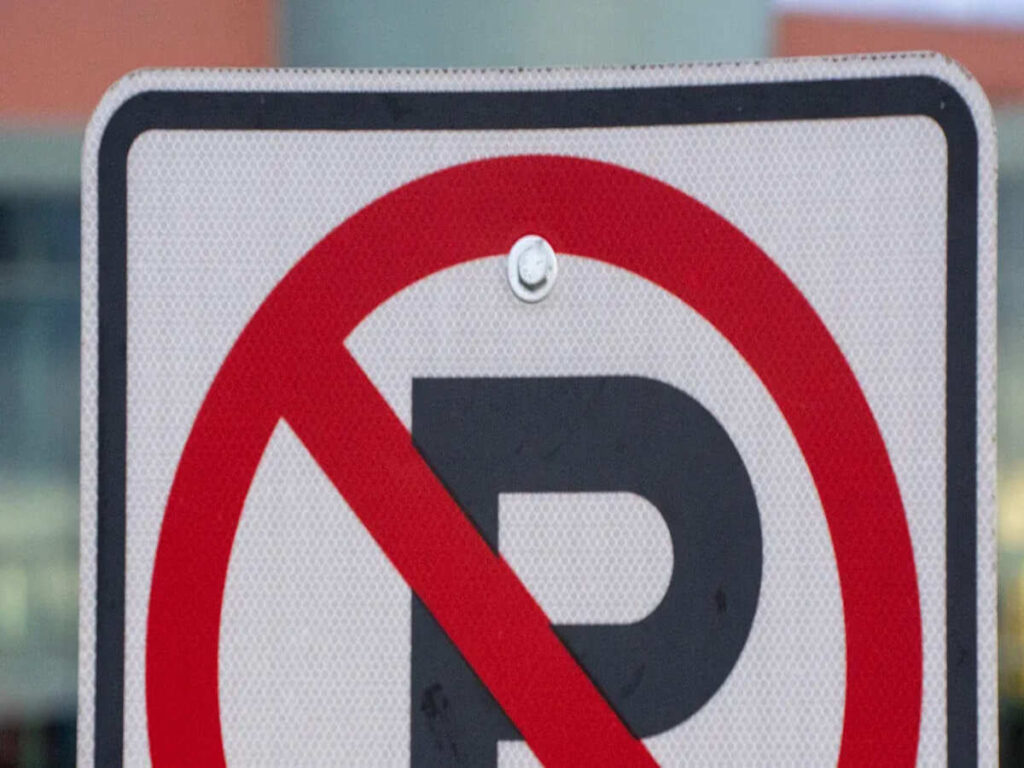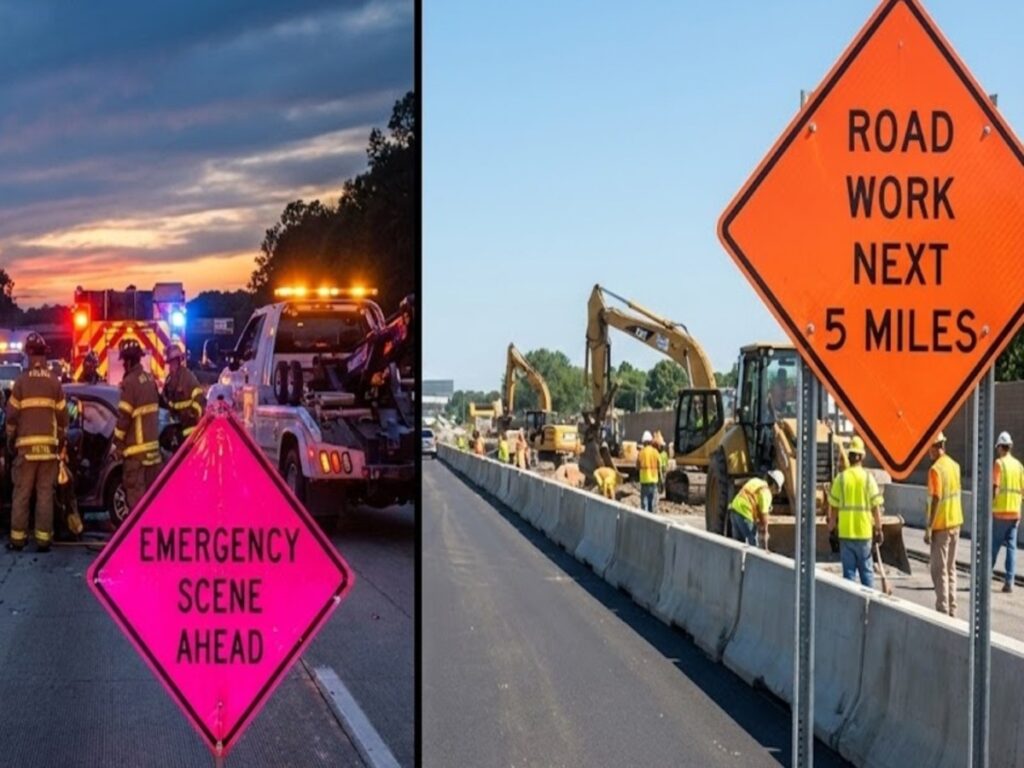
La sostenibilità svolge un ruolo vitale nel migliorare la sicurezza stradale. Incorporando materiali riciclati come plastica e gomma, aiuti a ridurre gli sprechi e a conservare le risorse. Questi materiali trasformano la produzione di delineatori portatili, rendendoli più ecologici ed economici. Per esempio, la plastica riciclata resiste ai raggi UV e alle intemperie, garantendo durata e prestazioni a lungo termine. Inoltre, l'utilizzo di materiali riciclati riduce le emissioni di carbonio e riduce al minimo i rifiuti in discarica. Questo approccio non solo supporta gli obiettivi ambientali ma migliora anche la funzionalità dei prodotti per la sicurezza stradale, garantendo che soddisfino gli standard moderni.
Integrando materiali riciclati, la sostenibilità diventa un potente strumento per migliorare la sicurezza stradale. Segni OPT abbraccia questo approccio per ridurre gli sprechi e conservare risorse preziose, trasformando delineatori portatili in soluzioni ecologiche ed economicamente vantaggiose. Plastica riciclata, noti per la loro resistenza ai raggi UV e alle condizioni atmosferiche estreme, offrono una lunga durata. Inoltre, l’utilizzo di questi materiali riduce le emissioni di carbonio e diminuisce i rifiuti in discarica, supportando sia gli obiettivi ambientali che la funzionalità. Questo metodo eco-consapevole non solo avvantaggia il pianeta, ma garantisce anche che i prodotti per la sicurezza stradale di OPTsigns soddisfino i più alti standard moderni.
Benefici ambientali dei materiali riciclati nei delineatori
Ridurre i rifiuti e conservare le risorse
Eliminare materiali come plastica e gomma dalle discariche.
Materiali riciclati svolgono un ruolo cruciale nella riduzione dei rifiuti. Riutilizzando plastica e gomma, aiuti a deviare questi materiali dalle discariche. Questo approccio riduce al minimo il carico ambientale causato dai rifiuti non biodegradabili. Per esempio, i delineatori di traffico flessibili realizzati con materiali riciclabili riducono i rifiuti promuovendo al tempo stesso gli sforzi di riciclaggio. Il loro design durevole garantisce inoltre un minor numero di sostituzioni, che preserva ulteriormente le risorse.
| Descrizione dell'evidenza | Contributo alla sostenibilità |
|---|---|
| I delineatori del traffico flessibile sono realizzati con materiali riciclabili. | Riduce gli sprechi e promuove il riciclaggio. |
| Il loro design durevole promuove la longevità. | Riduce al minimo la necessità di sostituti frequenti. |
Sostenere iniziative di riciclo attraverso materiali post-consumo.
L'utilizzo di materiale riciclato post-consumo supporta iniziative di riciclaggio globali. Quando scegli prodotti realizzati con plastica riciclata, contribuisci a un’economia circolare. Questo processo incoraggia la raccolta e il riutilizzo dei materiali, Ridurre la domanda di risorse vergini. Aiuta anche a creare un sistema sostenibile in cui i rifiuti diventano una risorsa preziosa.
Ridurre l’impronta di carbonio
Risparmio energetico nella produzione con materiali riciclati.
I processi di riciclaggio richiedono meno energia rispetto alla produzione di nuovi materiali. Quando i produttori utilizzano plastica riciclata, risparmiano energia e riducono l'impatto ambientale della produzione. Questa efficienza energetica contribuisce direttamente a ridurre l’impronta di carbonio.
Riduzione delle emissioni di gas serra rispetto alla produzione di materiale vergine.
L’utilizzo di materiali riciclati riduce significativamente le emissioni di carbonio. Il riciclaggio richiede meno energia, il che significa che vengono rilasciati meno gas serra. Inoltre, il risparmio di risorse come il petrolio e le mescole di gomma grezza riduce ulteriormente l’impronta di carbonio.
- L’utilizzo di materiali riciclati riduce significativamente le emissioni di carbonio rispetto ai materiali vergini.
- La riduzione è dovuta alla minore domanda di energia nei processi di riciclaggio.
- Il risparmio di risorse come il petrolio e le mescole di gomma grezza porta a una minore impronta di carbonio.
Promuovere la sostenibilità nella sicurezza stradale
Allineamento con pratiche eco-consapevoli nella gestione del traffico.
I materiali riciclati sono in linea con gli obiettivi di sostenibilità nella sicurezza stradale. Ad esempio, i coni stradali in gomma realizzati con materiali riciclati riducono i rifiuti e promuovono il riciclaggio. Questi coni offrono anche vantaggi pratici come flessibilità e durata. Adottando tali prodotti ecologici, contribuisci a ridurre al minimo l'impronta di carbonio dei metodi di produzione tradizionali.
- I coni stradali in gomma realizzati con materiali riciclati contribuiscono alla riduzione dei rifiuti e promuovono gli sforzi di riciclaggio.
- Questi coni offrono vantaggi pratici come flessibilità e durata nel rispetto degli obiettivi ambientali.
- L’adozione di coni stradali ecologici aiuta a ridurre al minimo l’impronta di carbonio associata ai metodi di produzione tradizionali.
Rispettare le linee guida normative per il contenuto riciclato.
Le linee guida normative incoraggiano l'uso di contenuti riciclati nei prodotti per la sicurezza del traffico. Studi, come quelli condotti da Texas Transportation Institute (Tti), valutare la sicurezza e le prestazioni dei materiali riciclati. Questi studi garantiscono che prodotti come i montanti del guardrail, supporti per segnaletica, e i coni stradali soddisfano i criteri di sicurezza promuovendo al tempo stesso la sostenibilità.
| Aspetto | Dettagli |
|---|---|
| Studio condotto da | Texas Transportation Institute (Tti) |
| Obiettivo | Valutare l'uso di materiali riciclati nei dispositivi di sicurezza stradale per soddisfare i criteri di sicurezza. |
| Materiali valutati | Plastica riciclata, fibra di vetro, gomma, fibre di legno. |
| Applicazioni | Posti di guardia, supporti per segnaletica, coni stradali, ecc. |
| Prossime fasi | Sono previste ulteriori valutazioni e crash test su vasta scala. |
Rispettando queste linee guida, ti assicuri che i prodotti per la sicurezza stradale contribuiscano agli obiettivi ambientali senza compromettere le prestazioni.
Proprietà dei materiali e prestazioni dei delineatori riciclati

Durata e longevità
Resistenza agli agenti atmosferici, Esposizione ai raggi UV, e usura fisica.
I materiali riciclati utilizzati nei pali del delineatore offrono una durata eccezionale. Questi materiali resistono alle condizioni atmosferiche avverse, Esposizione ai raggi UV, e usura fisica. Ciò li rende ideali per applicazioni esterne nella sicurezza stradale. Per esempio, i pali delineatori a base di polietilene mantengono la loro integrità strutturale anche in caso di esposizione prolungata al sole o di forti piogge. La loro capacità di assorbire gli urti e di ritornare nella posizione originaria garantisce prestazioni affidabili nel tempo.
| Caratteristica | Descrizione |
|---|---|
| Materiale | Realizzato con materiali riciclabili |
| Progetto | Design durevole che promuove la longevità |
| Assorbimento degli urti | Assorbe gli impatti e ritorna nella posizione originale senza danni |
| Frequenza di sostituzione | Riduce al minimo la necessità di sostituti frequenti |
Come i materiali riciclati garantiscono meno sostituzioni nel tempo.
Il design durevole dei pali delineatori flessibili riduce al minimo la necessità di sostituzioni frequenti. Ciò riduce la domanda di nuovi materiali e diminuisce la produzione complessiva di rifiuti. Scegliendo materiali riciclati, contribuisci a un sistema sostenibile garantendo prestazioni durature.
Flessibilità e Sicurezza
Il ruolo dei pali delineatori flessibili nella riduzione dei danni ai veicoli.
I pali delineatori flessibili migliorano la sicurezza assorbendo gli impatti dei veicoli. Ciò riduce al minimo i danni ai veicoli durante le collisioni e riduce il rischio di lesioni. Il loro design garantisce prestazioni affidabili in varie condizioni, rendendoli una scelta pratica per la gestione del traffico.
- I delineatori flessibili assorbono gli impatti dei veicoli, ridurre al minimo i danni.
- Migliorano la sicurezza e l’efficienza nella gestione del traffico.
- La loro durata garantisce prestazioni affidabili in varie condizioni.
Funzionalità di sicurezza migliorate dei materiali riciclati nei delineatori del traffico.
I materiali riciclati migliorano le caratteristiche di sicurezza dei pali del delineatore. Questi montanti sono progettati per assorbire gli impatti e tornare in posizione verticale, garantendo visibilità e funzionalità. Le strisce riflettenti migliorano la visibilità in condizioni di scarsa illuminazione, contribuire ulteriormente alla sicurezza stradale.
| Funzione di sicurezza | Descrizione |
|---|---|
| Durabilità | Realizzato in polietilene per flessibilità e durata. |
| Assorbimento degli urti | Progettato per assorbire l'impatto e tornare in posizione verticale. |
| Visibilità | Alto circa 30″ e include strisce riflettenti per la visibilità in condizioni di scarsa illuminazione. |
Costo-efficacia
Minori costi di produzione grazie all'utilizzo di materiali riciclati.
La produzione di pali delineatori con materiali riciclati riduce i costi rispetto all'utilizzo di materiali vergini. Il riciclaggio aiuta a ridurre gli sprechi e abbassa le spese di produzione. Ciò rende i delineatori riciclati un'opzione conveniente ed ecologica per la gestione del traffico.
| Aspetto | Materiali riciclati | Materiali Vergini |
|---|---|---|
| Costi di produzione | Inferiore | Più alto |
| Impatto ambientale | Positivo | Neutro |
Risparmi a lungo termine grazie a prodotti durevoli e che richiedono poca manutenzione.
La longevità dei perni delineatori flessibili riduce la frequenza di sostituzione. Ciò riduce al minimo le interruzioni e riduce i costi di sostituzione nel tempo. I prodotti durevoli e a bassa manutenzione forniscono una soluzione economica per la gestione del traffico, supportando al contempo gli obiettivi di sostenibilità.
Applicazioni di materiali riciclati nella gestione del traffico

Delineatori portatili e montanti flessibili
Come vengono utilizzati i materiali riciclati nella creazione di delineatori portatili.
I materiali riciclati svolgono un ruolo fondamentale nella produzione di delineatori portatili. Questi materiali includono plastica riciclata, fibra di vetro, gomma, e fibre di legno. I produttori utilizzano questi componenti per creare pali delineatori flessibili, canalizzare i tamburi, e coni stradali. Riproponendo questi materiali, contribuisci a ridurre gli sprechi e promuovi la sostenibilità nella gestione del traffico. Questo approccio sostiene anche l’economia circolare trasformando i materiali di scarto in preziosi dispositivi di controllo del traffico.
Vantaggi dei pali delineatori flessibili per ambienti urbani e autostradali.
I pali delineatori flessibili offrono numerosi vantaggi per la gestione del traffico urbano e autostradale. Il loro design resistente garantisce longevità, Ridurre la necessità di sostituti frequenti. Questi post, realizzato con materiali riciclabili, ridurre al minimo gli sprechi e sostenere pratiche ecocompatibili. La loro natura leggera riduce le emissioni dei trasporti, richiedendo meno energia per il movimento e l'installazione. Inoltre, i delineatori flessibili migliorano la sicurezza stradale organizzando il flusso del traffico e riducendo gli incidenti. Meno veicoli al minimo comportano emissioni inferiori, con benefici sia per l’ambiente che per la salute pubblica.
Dispositivi temporanei di controllo del traffico
L'uso di materiali riciclati nei coni stradali e nelle barriere.
I materiali riciclati sono ampiamente utilizzati nei dispositivi temporanei di controllo del traffico come coni e barriere. Coni di traffico di gomma, ad esempio, sono realizzati in gomma riciclata, che riduce la domanda di gomma vergine e previene la deforestazione. Il processo di produzione prevede la selezione e la triturazione dei coni in PVC, sciogliendo il materiale, e riformandolo in nuove forme. Questi coni sono spesso dotati di basi in gomma riciclata per una maggiore stabilità. Questa pratica consente di risparmiare energia, riduce le emissioni di carbonio, e promuove la sostenibilità nella gestione temporanea del traffico.
Vantaggi della leggerezza, materiali durevoli per allestimenti temporanei.
I materiali leggeri e durevoli offrono vantaggi significativi per le configurazioni temporanee del traffico. La gomma riciclata mantiene la flessibilità e assorbe gli urti, rendendolo ideale per varie applicazioni. La plastica riciclata resiste ai raggi UV, umidità, e variazioni di temperatura, garantendo la durabilità in condizioni esterne. Questi materiali riducono anche i costi di produzione, offrendo opzioni convenienti per dispositivi temporanei di controllo del traffico. Utilizzando materiali riciclati, contribuisci a ridurre gli sprechi e l'impatto ambientale garantendo al tempo stesso visibilità chiara e prestazioni affidabili.
Delineatori di traffico permanenti
Esempi di installazioni permanenti realizzate con materiali riciclati.
I delineatori permanenti del traffico realizzati con materiali riciclati includono barricate di sicurezza, Delineatori, marcatori, e canalizzatori. I delineatori di traffico flessibili sono un altro esempio di come i materiali riciclati contribuiscono a soluzioni infrastrutturali a lungo termine. Queste installazioni dimostrano la versatilità e l’efficacia dei materiali riutilizzati nella creazione di dispositivi di controllo del traffico durevoli e sostenibili.
Come queste installazioni contribuiscono agli obiettivi di sostenibilità a lungo termine.
Le installazioni permanenti realizzate con materiali riciclati riducono significativamente l'impronta ambientale della costruzione stradale. Questi materiali presentano proprietà meccaniche superiori, migliorare la durabilità delle infrastrutture. Le applicazioni reali dei materiali riciclati nella progettazione delle pavimentazioni e nei delineatori del traffico supportano sistemi di trasporto sostenibili. Scegliendo queste soluzioni, contribuisci a un futuro più verde mantenendo elevati standard di sicurezza e funzionalità stradale.
Sfide e prospettive future dei materiali riciclati nei delineatori
Controllo qualità e standard
Garantire che i materiali riciclati soddisfino gli standard di sicurezza e prestazioni.
I materiali riciclati utilizzati nei delineatori devono soddisfare rigorosi standard di sicurezza e prestazioni. Lo garantisci ricercando e verificando le loro proprietà ingegneristiche. Questo processo garantisce che i materiali riciclati abbiano prestazioni pari o migliori rispetto ai materiali tradizionali. Per esempio, polietilene e gomma sono sottoposti a test rigorosi per confermarne la durata e la flessibilità. Questi test garantiscono che i delineatori mantengano la loro integrità strutturale in condizioni difficili, garantendo la sicurezza dei pedoni e dei ciclisti. Il rispetto di questi standard aumenta anche il fascino eco-consapevole dei prodotti per la sicurezza stradale.
Affrontare la variabilità nella qualità degli input riciclati.
La variabilità degli input riciclati può rappresentare una sfida durante la produzione. È possibile affrontare questo problema comprendendo le tendenze della domanda e dell’offerta di materiali riciclati. L'esecuzione di sondaggi presso produttori e fornitori rivela la disponibilità di materiali riciclabili di alta qualità. Sistemi di informazione geografica (GIS) aiutare ad analizzare le catene di approvvigionamento, garantire che le risorse siano indirizzate in modo efficace. Queste strategie riducono le incoerenze e migliorano l'affidabilità dei delineatori realizzati con materiali riciclati.
- Identificare le regioni con carenze di materiali aiuta i materiali riciclati a ottenere un vantaggio competitivo.
- Le indagini rivelano la volontà dei fornitori di trattare materiali riciclabili.
- Strumenti GIS ottimizzare l'allocazione delle risorse e migliorare la qualità dei materiali.
Raccolta e smistamento dei materiali riciclabili
Sfide nell’approvvigionamento di materiali riciclati di alta qualità.
L’approvvigionamento di materiali riciclati di alta qualità rimane una sfida significativa. IL Dipartimento dei trasporti del Texas (TxDOT) evidenzia la necessità di dati migliori sui rifiuti urbani e sull’utilizzo dei materiali tradizionali. La disponibilità limitata spesso porta la domanda a superare l’offerta. L’espansione dei programmi di riciclaggio e l’incoraggiamento al recupero dei materiali possono risolvere questo problema. Tuttavia, anche il costo iniziale di produzione utilizzando materiali rinnovabili può fungere da barriera.
- Elevato investimento iniziale in materiali rinnovabili.
- Disponibilità limitata di materiali riciclati di alta qualità.
- I programmi di riciclaggio devono crescere per soddisfare la domanda.
Innovazioni nella tecnologia di riciclaggio per migliorare la selezione dei materiali.
Le tecnologie innovative stanno trasformando il processo di riciclaggio. L'IoT migliora la visibilità dei flussi di lavoro, migliorare la qualità del flusso di rifiuti. L'intelligenza artificiale automatizza lo smistamento e l'analisi dei materiali, aumento dell’efficienza e della sicurezza dei lavoratori. I robot di riciclaggio alimentati dall’intelligenza artificiale semplificano ulteriormente le linee di smistamento, riducendo gli errori e velocizzando la produzione.
| Tipo di innovazione | Descrizione |
|---|---|
| IoT | Migliora la visibilità nei flussi di lavoro di riciclaggio e migliora il controllo di qualità. |
| AI | Automatizza l'ordinamento e l'analisi, aumentando l’efficienza e la sicurezza. |
| Robot per il riciclaggio | Utilizza l'intelligenza artificiale per automatizzare le linee di smistamento, riducendo gli errori e aumentando la velocità. |
Innovazioni future nella sicurezza stradale
Tecnologie emergenti per migliorare le proprietà dei materiali riciclati.
Le tecnologie emergenti stanno migliorando le proprietà dei materiali riciclati per i delineatori. Il polietilene offre flessibilità e durata, mentre la gomma naturale fornisce resilienza, consentendo ai delineatori di tornare in posizione verticale dopo gli impatti. Il policarbonato aggiunge resistenza e stabilità alla struttura. Questi progressi garantiscono che i delineatori rimangano una scelta sostenibile per la sicurezza stradale.
| Materiale | Contributo alla durabilità e alla longevità |
|---|---|
| Polietilene | Fornisce eccellente flessibilità e durata. |
| Gomma naturale | Migliora la resilienza, consentendo ai delineatori di riprendersi dopo gli impatti. |
| Policarbonato | Aggiunge stabilità e forza alla struttura complessiva. |
Ampliare l’uso di materiali riciclati in altri prodotti per la sicurezza stradale.
I materiali riciclati possono estendersi oltre i delineatori fino ad altri prodotti per la sicurezza stradale. Posti di guardia, supporti per segnaletica, e i coni stradali traggono vantaggio dalla plastica e dalla gomma riciclate. Questi materiali offrono resistenza agli urti, resilienza alle intemperie, e risparmio sui costi. Diminuendo i rifiuti dalle discariche, contribuisci a iniziative verdi e promuovi la sostenibilità.
| Tipo di prodotto | Potenziali materiali riciclati utilizzati |
|---|---|
| Pali di supporto per guardrail | Plastica riciclata, fibre di legno |
| Firma spazi vuoti e supporti | Plastica riciclata, fibre di legno |
| Elementi che assorbono energia | Gomma riciclata, plastica |
| Post di delineazione flessibili | Plastica riciclata |
| Coni e tamburi stradali | Plastica riciclata, gomma |
| Dispositivi di controllo del traffico nelle zone di lavoro | Plastica riciclata, gomma |
I materiali riciclati nei prodotti per la sicurezza stradale garantiscono la sicurezza di ciclisti e pedoni riducendo al contempo l'impatto ambientale. La loro durabilità e convenienza li rendono una scelta pratica e sostenibile per le infrastrutture moderne.
I materiali riciclati nei delineatori offrono numerosi vantaggi per i dispositivi di sicurezza stradale e per l'ambiente. Riducono i rifiuti in discarica, conservare le risorse, e emissioni di carbonio inferiori. I coni stradali in gomma e altri dispositivi di sicurezza stradale realizzati con materiali riciclati si allineano agli obiettivi di sostenibilità offrendo allo stesso tempo durata e risparmio sui costi. Innovazioni continue, come tecnologie avanzate di riciclaggio e analisi dei dati, affrontare sfide come il controllo della qualità e l’approvvigionamento dei materiali. Abbracciando materiali riciclati, contribuisci a un'infrastruttura stradale sostenibile, ridurre l’impatto ambientale, e sostenere pratiche di gestione del traffico rispettose dell’ambiente. Questo approccio garantisce un futuro più verde per la sicurezza stradale

















